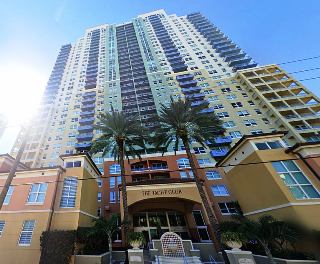- A unit owner sued the condo board at the Yacht Club at Portofino.
- The defendant claimed it was taking steps to remedy the problem, but ultimately, a state court judge had to enter an emergency motion for a mandatory temporary injunction.
- The multimillion-dollar settlement followed soon afterward the judge’s ruling but ahead of an upcoming trial.
After a state court in Miami entered an emergency motion for a mandatory temporary injunction, a South Florida attorney leveraged the ruling to obtain a $3.1 million settlement for his client, who sustained over a decade of delays by the condo association in the repairs of his unit.
|
The Yacht Club at Portofino in Miami |
However, in both instances, the
association failed to eradicate the conditions Ger reported,
resulting in damage to the ceilings, electrical circuits,
carpets, marble and more. As a result, In December 2013,
Weil sued the association in the Miami-Dade Circuit Court,
asserting claims of negligence, breach of fiduciary duty,
and violations of the Florida Deceptive Practices Act.
In February 2018, Weil filed his first emergency motion for
a temporary injunction. In response, the defendant claimed
to have taken steps to “expeditiously resolve the water
intrusion in plaintiff’s unit,” court records show. Five
years later, the plaintiff asserted that the water intrusion
into his home had continued, and the defendant failed to
correct it.
Weil sought the emergency temporary injunction on behalf of
the plaintiff, to prevent the defendant from continuing to
allow damage to his unit.
Sanford Kaminsky, a licensed architect, testified at the
hearing on the motion about his inspection of the property
in August, leading Broward Circuit Judge Antonio Arzola to
make multiple findings in December, that warranted entry of
the injunction.
First, Arzola held that the plaintiff had been irreparably
harmed by the defendant’s actions; second, the plaintiff has
no adequate remedy at law because the plaintiff could not
repair the damages himself due to the contract terms; third,
the plaintiff had a substantial likelihood of success on the
merits based on the continuous water intrusion; and fourth,
the public interest favored an injunction, “especially given
the life safety issues” to which Kaminsky testified.
And on Friday, Weil obtained the settlement from the
defendant, ahead of an upcoming trial.
He said, “It is important for people to be invested in
whatever the board decides.”
